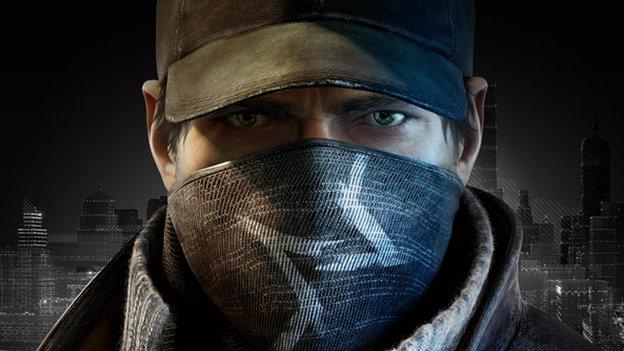Watch Dogs hacks its way to the dawn of next-gen gaming
- Published
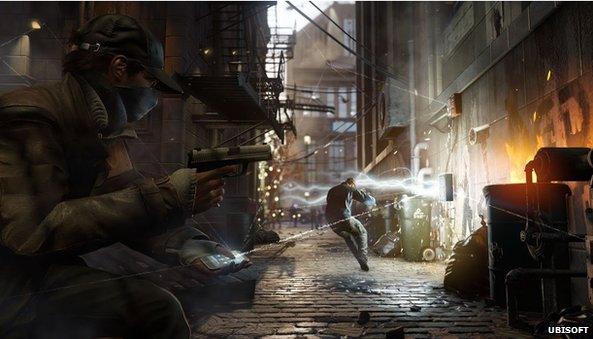
Watch Dogs allows its players to hack into Chicago's internet-connected devices to cause havoc
We've got the hardware, but half a year after the PlayStation 4 and Xbox One went on sale, gamers are still waiting for a new type of experience to truly define next-generation console gaming.
It could be a hardcore title that blows the doors off what we thought possible and inspires other developers to reach for new heights. Or a game that does what Uncharted and Bioshock did for the last generation, or Grand Theft Auto 3 and Halo for the one before that.
Could Watch Dogs fulfil this role?
The game was originally supposed to go on sale at the same time as the new consoles launched but it was delayed until now for fine-tuning.
What's emerged is an expansive, visually impressive and ambitious title, thanks in part to its city-hacking game-play.
But at first glance, the versions made for the PS4 and Xbox One don't differ as much as many had anticipated from the previous PS3 and Xbox 360 releases (a Wii U version will follow later).
And so, perhaps inevitably, before the game has launched the backlash has begun.
'Crescendo of reaction'
Gamers expressed their outrage that the new game wouldn't offer full 1080p high definition resolution on the new machines and would only provide animations at half the expected 60 frames per second (fps). Their comments were made in response to a blog by Watch Dogs' publisher Ubisoft , externalwhich explained why the game should still be considered "true next-gen".
The game's creative director acknowledges the reaction was inevitable, but suggests his critics are missing the point.
"If you make a game that is 1080p and 60fps but you don't change anything about how you bring the systems to interact with each other, you're just playing a more beautiful game that is exactly the same as before," James Morin, tells the BBC from his Montreal office.
"That's the kind of thing I wanted to avoid."
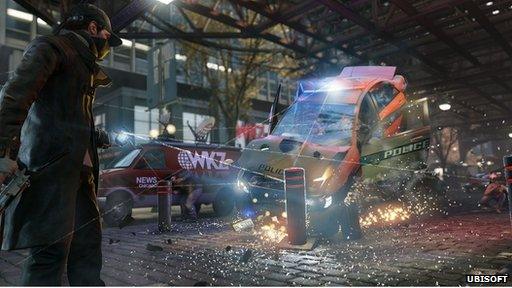
Computer-controlled characters express fear when the player causes explosions, in this case by hacking into software controlling bollards to cause a police car to crash
Instead, he explains, he has used the new consoles' extra grunt for other means.
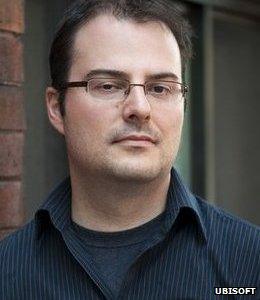
Mr Morin worked on Far Cry 2 before becoming creative director of Watch Dogs
This includes providing more processing power for artificial intelligence.
The next-gen versions allow more computer-generated characters to appear on screen at a time, with each individual's behaviour able to influence the others.
If the player waves his gun around or blows things up, Mr Morin explains the AI creates a greater "crescendo of reaction".
"We [also] start to simulate elements that are a bit more invisible to the player, for example simulating the wind in real-time," he adds.
"Even though it sounds like very small microscopic details, it's the kind of thing that when you pull off, your brain reacts to it immediately."
The new consoles also get more multiplayer modes, including one in which play can "seamlessly switch" to a capture-the-flag type battle involving eight online players, which Mr Morin says the old machines couldn't cope with
Crossing the generations
If the differences between the generations sounds a bit less groundbreaking than one might hope, it may still make good business sense.
"There's still a huge install base for the previous generation, more than for any past generation of consoles," explains James Batchelor, editor of Develop magazine, which follows games' creators.
"And people don't want to buy a watered down version of a next-gen hit. They want the same experience."
Ubisoft is splitting directions for another of its franchise: the two generations of consoles will get totally different games for its next Assassin's Creed sequels.
But Mr Batchelor notes that this is an exception.
"Most of the games in development for the next-generation - even the ones that won't come out until next year - are still due for the Xbox 360 and PS3."
'Slave of the technology'
Going "next-gen exclusive" has advantages.
Environments can be larger and have more intricate designs.
It will also become easier for developers to avoid making players wait in a lift or be involved in another game mechanic designed to mask the fact the console needs to load the next area.
"I call that the seamless flow - never having those awkward moments when you're not playing anymore," says Mr Morin.
The Watch Dogs creator says he's not ready to disclose specifics about his own plans to take advantage of going next-gen exclusive.
But he says he hopes the future is more about offering radical new ways to interact with a game rather than making simple improvements to what has gone before.
"I'm a firm believer that making a game is not about being a slave of the technology you have in front of you," Mr Morin says.
"I think what is interesting to think about is that in the end it's always the kind of question that you ask to the people who understand profoundly how AI works or how graphics work that can bring you elsewhere.
"That's the kind of ideas that you want to explore that will push whatever next-gen can be."
There are still patches and downloadable content (DLC) for Watchdogs to come.
But with most of the work out of the way, Mr Morin says he's now looking forward to next month's E3 games show in Los Angeles, where others will unveil their still-in-development titles.
"People want to be blown away by how they can do things in a game - and that's what I'm waiting for," he adds.
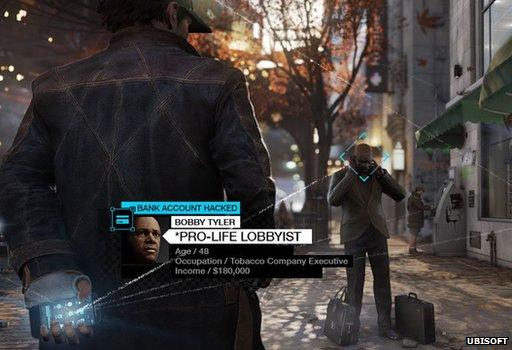
Gamers can hack into in-game characters' smartphones to reveal personal details
"I think it's going to happen, and I think there's a lot of potential with the new machines to pull it off.
"But it needs the balls from the company and business point of things to let people try new things and not just cram more visuals and mechanics in like they've been doing for 25 years."
- Published20 May 2014
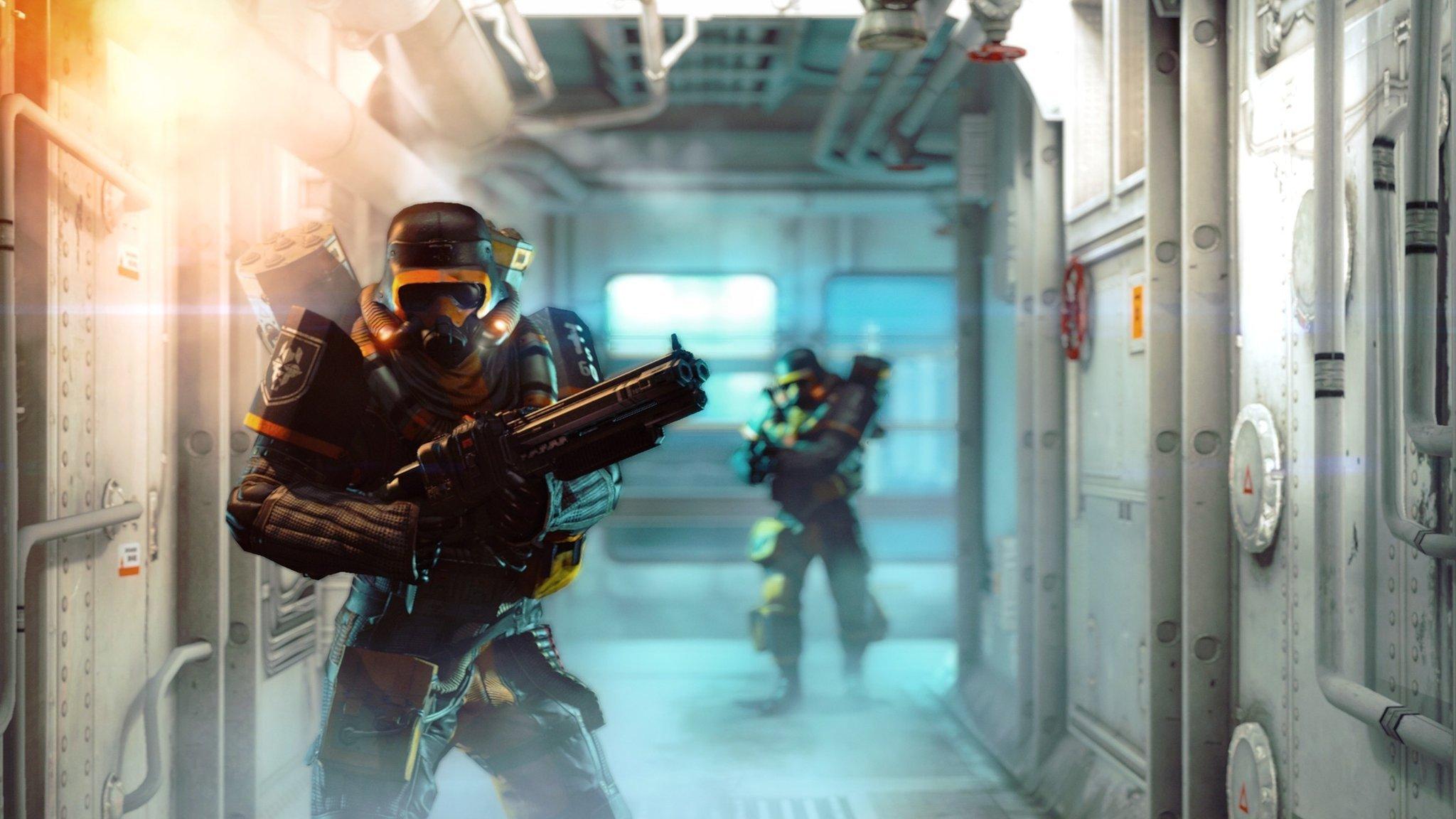
- Published6 May 2014
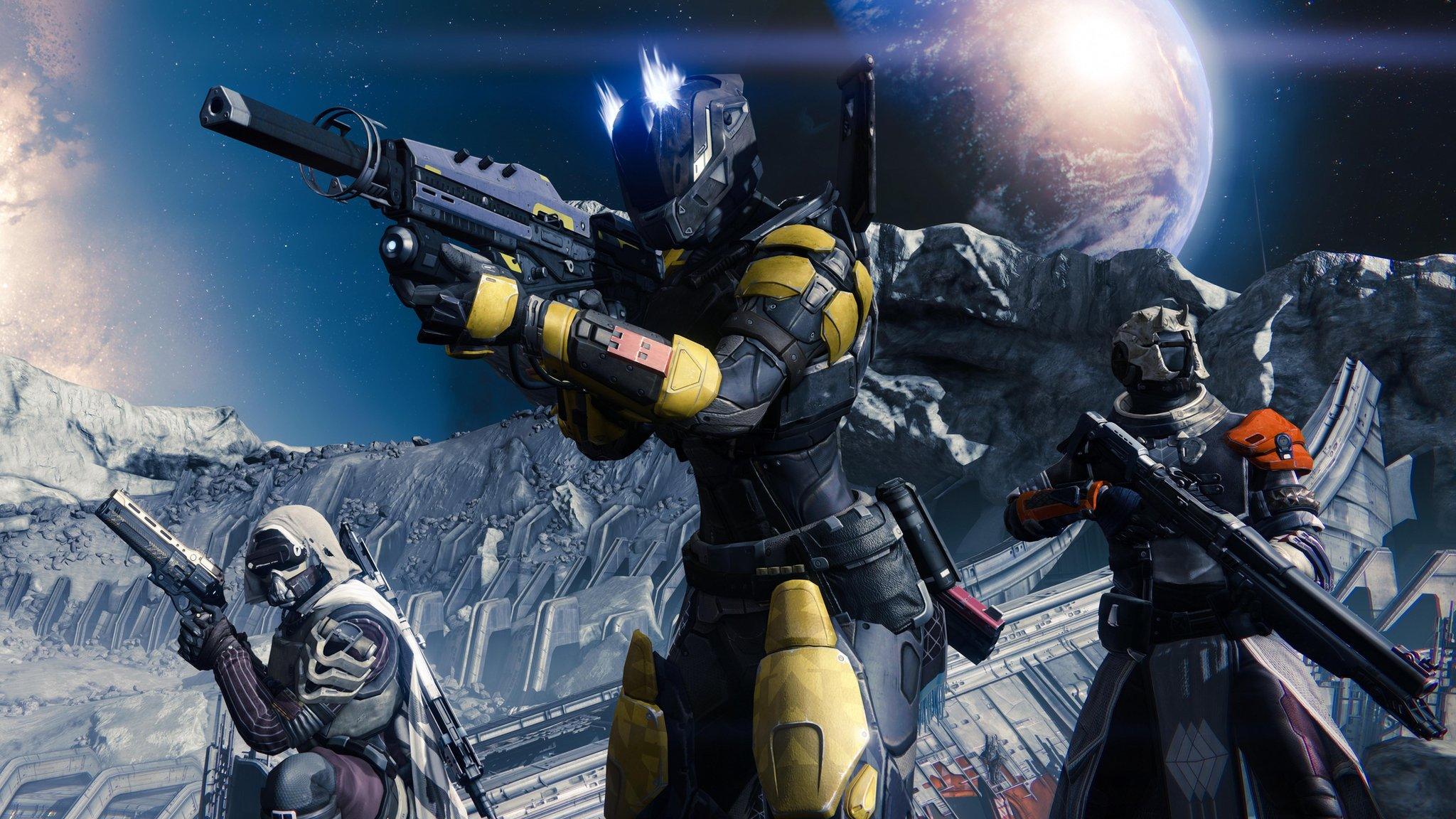
- Published16 October 2013
